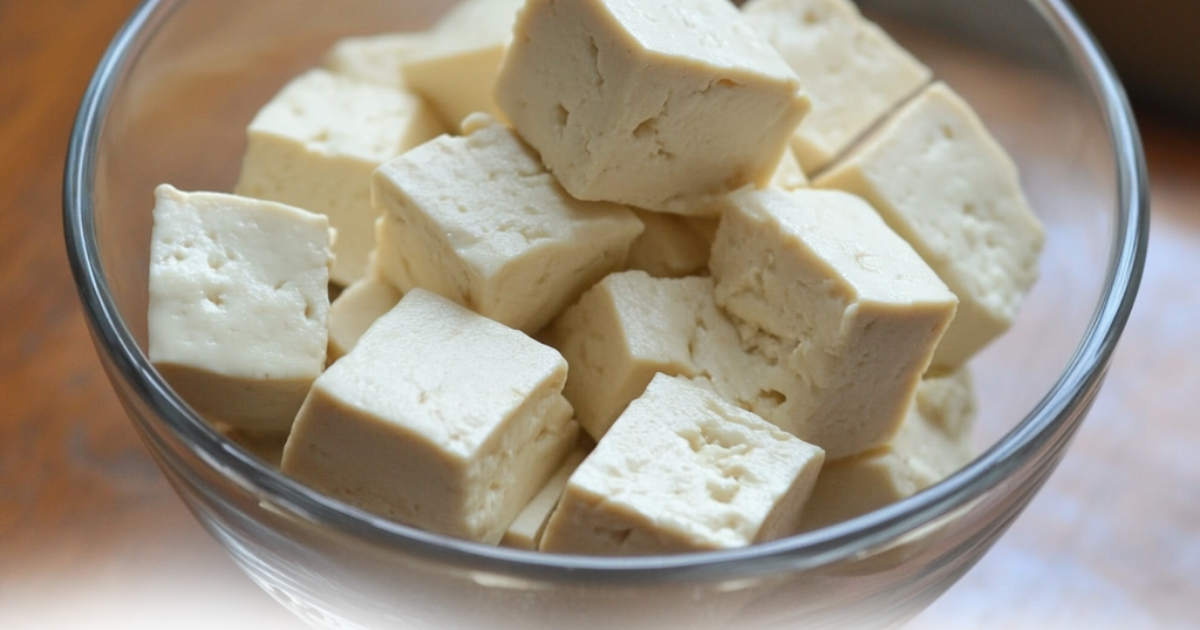Feta cheese, a staple in Greek cuisine, is celebrated for its tangy taste and crumbly texture. Traditionally made from sheep’s milk or a blend of sheep and goat’s milk, feta enriches various dishes with its unique flavor profile. However, there are certain times when indulging in this beloved cheese may not be advisable. When not to eat feta cheese? This guide will explore various health-related scenarios where feta cheese should be avoided, ensuring that your consumption is both safe and enjoyable.
Table of contents
Nutritional Overview of Feta Cheese
When not to eat feta cheese? Understanding its nutritional content can provide insights. Feta cheese is a rich source of calcium and phosphorus, vital for bone health. However, it is also high in calories and saturated fats. Moderation is key, especially for individuals managing their calorie and fat intake. This section explores the nutritional balance of feta cheese and when it might be detrimental to include it in your diet.

Sodium Content: A Primary Concern
When not to eat feta cheese? Consider its sodium content. Feta cheese contains significant sodium levels, which can lead to health issues if consumed in large quantities. This is particularly pertinent for individuals with hypertension or heart conditions. Let’s examine how the sodium in feta cheese can affect your health and why it might be best to limit consumption:
- High blood pressure risk: Increased sodium intake can raise blood pressure.
- Fluid retention: Sodium can cause the body to retain water, leading to swelling and discomfort.
Health Risks Associated with High Sodium
The dangers of high sodium intake extend beyond immediate impacts like high blood pressure. Over time, excessive consumption can contribute to chronic health problems. When not to eat feta cheese? If you are at risk for or currently managing any of the following conditions, reducing sodium-heavy foods like feta may be advisable:
- Heart disease
- Stroke
- Kidney damage
Learn more about why some cheeses have elevated sodium levels and how to balance your intake.
Implications for Cardiovascular Health
When not to eat feta cheese? It’s crucial when considering cardiovascular health. Sodium can exacerbate conditions such as hypertension and heart disease. This section details how the sodium in feta cheese might influence heart health, emphasizing the need for individuals with cardiovascular concerns to manage their cheese intake carefully.

Bone Health: Calcium Benefits and Risks
Calcium is essential for strong bones, and feta cheese is a good source. It helps maintain bone density and overall bone health. However, feta cheese also has high sodium, which can reduce the benefits of calcium by causing the body to lose it through urine. Plus, feta has less vitamin D, which is important for absorbing calcium.
Should you avoid feta cheese? If you have osteoporosis or other bone issues, it’s important to eat foods rich in calcium, vitamin D, and magnesium while keeping sodium intake low. People on low-sodium diets or with kidney problems may need to limit feta cheese. Instead, you can try calcium-rich alternatives like leafy greens, fortified plant-based milk, or low-sodium dairy to support bone health.
Lactose Content and Digestive Sensitivity
Feta cheese contains lactose, a sugar that can cause digestive issues for some people. When not to eat feta cheese? If you are lactose intolerant or have other digestive sensitivities. This segment will discuss how feta cheese might affect those with digestive concerns and provide guidelines for consumption.
Pregnancy and Cheese Safety
Pregnancy is a time when diet is crucially scrutinized. When not to eat feta cheese? During pregnancy, especially if the cheese is unpasteurized. There is a risk of bacteria like Listeria, which can be harmful during pregnancy. This final section will outline safe cheese practices for expectant mothers, focusing on when to avoid feta cheese to ensure health and safety.
This comprehensive guide aims to provide a detailed understanding of when not to eat feta cheese, addressing common concerns and health implications associated with its consumption. By being informed about these factors, individuals can make healthier dietary choices that align with their specific health needs.
Allergic Reactions to Dairy Products
When considering when not to eat feta cheese, it is crucial to acknowledge allergic reactions to dairy products. Feta cheese, made primarily from sheep or goat’s milk, can trigger symptoms in individuals allergic to these milks. Symptoms might include itching, swelling, gastrointestinal distress, and in severe cases, anaphylaxis. If you experience any adverse reactions after consuming feta cheese, it’s important to consult a healthcare provider and potentially avoid this dairy product.
Impact on Chronic Conditions
When not to eat feta cheese is particularly relevant for those managing chronic conditions like hypertension or cardiovascular disease. Feta cheese contains high levels of sodium and saturated fat, which can aggravate these conditions. For individuals with such health concerns, reducing feta intake or choosing lower-sodium and lower-fat cheese options may be advisable to maintain optimal health.
Guidelines for Consuming Feta Cheese
There are specific guidelines for consuming feta cheese that help minimize health risks. Firstly, consuming feta cheese in moderation is key due to its high sodium content. Additionally, individuals should ensure the cheese is part of a balanced diet, which includes a variety of other nutrient-rich foods. Also, opting for varieties made from pasteurized milk is safer, particularly for pregnant women, the elderly, and those with weakened immune systems.
Identifying and Avoiding Expired Feta
Knowing when not to eat feta cheese includes identifying signs of spoilage. Expired feta cheese may exhibit a sour smell, a slimy texture, and an off taste. If the feta looks discolored or moldy, it should not be consumed. Consuming spoiled feta can lead to foodborne illnesses, highlighting the importance of checking expiration dates and storing cheese correctly.
Storage Tips for Feta Cheese
Proper storage is essential for preserving the flavor, texture, and freshness of feta cheese. Feta is traditionally stored in brine, a saltwater solution that keeps the cheese moist and prevents it from drying out. If your feta comes in brine, keep it submerged in its original liquid and transfer it to an airtight container to reduce exposure to air. This helps maintain its creamy texture and tangy flavor.
If your feta does not come in brine, you can make your own by dissolving 1 teaspoon of salt in 1 cup of water. Ensure the feta is completely covered by the brine and refrigerate it. Changing the brine weekly not only helps extend the shelf life but also keeps the cheese tasting fresh. With proper care, feta stored in brine can last up to three weeks after opening.
For smaller portions or short-term use, you can also wrap feta in wax or parchment paper, followed by plastic wrap, and store it in an airtight container. However, this method may dry out the cheese faster and is less effective than storing it in brine.
Healthier Alternatives to Feta Cheese
For those considering when not to eat feta cheese, exploring healthier alternatives is beneficial. Cheeses like mozzarella or ricotta offer lower sodium options. Plant-based cheeses made from nuts like almonds or cashews provide a non-dairy alternative rich in nutrients and lower in unhealthy fats, suitable for those with dairy allergies or lactose intolerance.
Incorporating Feta in Healthy Diets
Incorporating feta in healthy diets can be done wisely. Its strong flavor allows for using less cheese while still achieving desired taste, which helps control calorie intake. Pairing feta with vegetables in salads, using it as a topping for whole-grain dishes, or including it in small amounts in homemade spreads can enhance your meals nutritionally without overindulging in sodium and fat.
Frequently Asked Questions
What are the signs of a dairy allergy?
Common symptoms include hives, swelling, stomach upset, vomiting, diarrhea, and, in severe cases, difficulty breathing. If you suspect a dairy allergy, consult a healthcare provider immediately.
Is feta cheese high in lactose?
No, feta cheese is relatively low in lactose compared to many other cheeses. This makes it a better option for individuals with mild lactose intolerance, although those with severe lactose sensitivity should still consume it cautiously.
How long can feta cheese be stored?
Feta cheese can last up to four weeks if stored properly. Keep it submerged in brine (saltwater) in an airtight container in the refrigerator to maintain freshness and flavor. Replace the brine weekly for the best results.
Can I eat feta cheese if I’m on a low-sodium diet?
Feta cheese is naturally high in sodium, so it may not be suitable for those on a strict low-sodium diet. However, rinsing feta under cold water before use can help reduce its sodium content.
Can I freeze feta cheese?
Yes, feta cheese can be frozen, but it may alter the texture, making it more crumbly. To freeze, cut the feta into portions, wrap tightly in plastic wrap or foil, and place in a freezer-safe bag. Thaw in the fridge before use.
What dishes work best with feta cheese?
Feta cheese is versatile and works well in salads, omelets, pastries, pasta dishes, and as a topping for roasted vegetables or pizzas. Its tangy flavor pairs especially well with Mediterranean-style recipes.
Is feta cheese vegan?
No, traditional feta cheese is made from animal milk (usually sheep or goat). However, vegan alternatives made from tofu, almonds, or coconut milk are available for plant-based diets.

